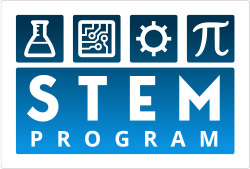Explore Programs
Physics and Applied Physics - DOCTORATE (PHD)
 STEM Program
STEM ProgramDEGREE OVERVIEW
The objective of graduate work in physics is to prepare the student for continued professional and scholarly development as a physicist. The Doctor of Philosophy in physics and applied physics program combines the traditional elements of a science doctoral program with courses in specifically applied topics and internships in technological environments. It is designed to produce highly trained professionals with a broad perspective of the subject that prepares them equally well for careers in academia or in government or industrial laboratories.
ABOUT THE PROGRAM
The Doctor of Philosophy in physics and applied physics program combines the traditional elements of a science doctoral program with courses in specifically applied topics and internships in technological environments. It is designed to produce highly trained professionals with a broad perspective of the subject that prepares them equally well for careers in academia or in government or industrial laboratories.
LEARN MORE
- Admissions requirements and degree curriculum
- Degree information in the University Catalog
- Physics faculty
- Program accreditation
CAREER OPPORTUNITIES
- Postsecondary Physics Teachers:
- Biophysicists
- Physicists and Astronomers
- Natural Sciences Managers
- Petroleum Engineers
- By obtaining a Ph.D. in physics, graduates acquire the education, skills, and hands-on experience necessary to access several careers within the field of physics. Options include teaching at the college level and conducting independent research in the corporate or academic sectors.
Ph.D. program graduates have a good understanding of not only how to conduct labs, but they are also able to assist students in conducting their own research in an effective manner.
Students who have obtained a Ph.D. will be well-versed in how things should work within a laboratory setting, and this advanced degree can qualify them to conduct independent research in the field.
A Ph.D. in physics can meet the typical minimum requirement for research careers in this field.
They set standards for both research and development and ensure that these same standards are met by staff members. Furthermore, they oversee the hiring of staff members related to a given project and give them guidance when necessary, as well as review all work being conducted to ensure its accuracy. Having worked in the lab continuously on their way to a Ph.D., recent graduates will have a good idea of how to manage research in such a setting.
The Ph.D. graduate might also use their advanced knowledge to determine which sites could yield the greatest return on investment. Individuals with a Ph.D. in physics and an engineering background have the ability to work in research and development in this industry.
WHY CHOOSE US?
- The Department of Physics has outstanding undergraduate and graduate programs from B.S. through the Ph.D. The Physics Department has a faculty committed to teaching excellence while vigorously pursuing nationally and internationally recognized research in many areas.
- Students at the undergraduate and graduate levels are encouraged to participate with our outstanding faculty in these research programs.
- Diverse physics research areas: Astrophysics, Biomedical Physics, Center for Nanostructured Materials, Chaos & Nonlinear Physics, Theoretical and Experimental Condensed Matter Physics, High Energy and Nuclear Physics, High Energy Physics Group, Neutrino Physics Group, Neutrinos and Rare Event Searches, Medical Bio Physics, Nano-Bio Physics, Nanostructured Magnetic Materials, Nanostructured Materials, and Space Physics. and Theoretical Condensed Matter Physics.
- U.S. News & World Report’s 2021 “Best Graduate Schools” list ranks the College of Science’s graduate program in physics No. 119.
- Marketable skills gained: gathering information, using original sources, applying theoretical approaches to problems, establishing hypotheses and defining problems, synthesizing and analyzing information, and experiment design, testing, and validation.
GET STARTED
Take the next step toward investing in yourself by learning more about our Physics and Applied Physics - Doctorate (PhD) program.
Apply Today
If you're ready, so are we. The next step is to apply. Applying for admission is easy, and we're here to work with you every step of the way.
PROGRAM CONTACT
Learn More
Physics and Applied Physics - DOCTORATE (PHD)
Learn more about this program on the Department or College website.
